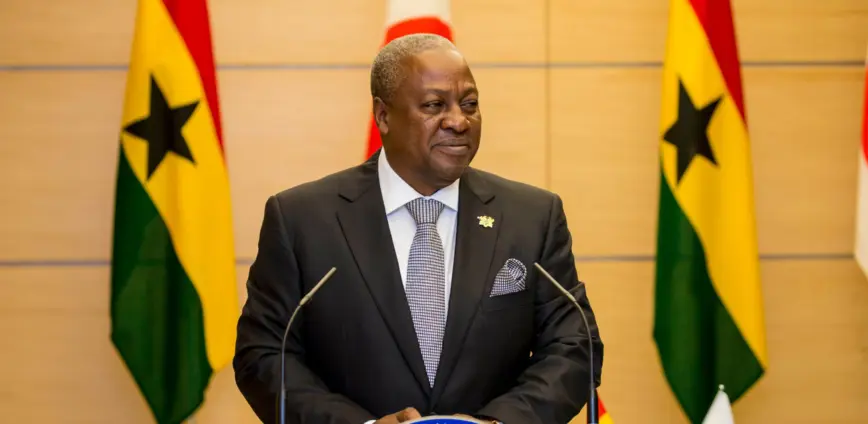In the ongoing discourse surrounding Ghana’s economic stability, the fate of the Ghanaian Cedi often takes center stage. The currency’s performance is frequently used as a barometer to measure the efficacy of different administrations’ economic strategies. A recent exchange between Dr. Gideon Boako, Member of Parliament for Tano North and an aide to former Vice President Dr. Mahamudu Bawumia, and Sammy Gyamfi, CEO of Goldbod, has ignited fresh debate about the factors influencing the Cedi’s value. At the heart of the discussion lies a fundamental question: Is the recent appreciation of the Cedi a result of current policies or the foundation laid by the previous administration? Exploring this question requires a careful examination of the economic approaches championed by both the Mahama and Bawumia administrations, particularly regarding the management and stability of the Ghanaian Cedi.
Sammy Gyamfi attributes the Cedi’s 16.7% appreciation since January 2025 to a confluence of factors, including stringent monetary policy, fiscal consolidation, and increased foreign exchange inflows from gold exports and remittances. He also pointed to the Bank of Ghana’s decision to increase interest rates by 100 basis points and the strategic buildup of reserves as contributing factors to the currency’s recent gains. However, Dr. Boako strongly contests this assessment, labeling it as "grossly inadequate."
Dr. Boako argues that the reserve buffers currently utilized by the Mahama administration were, in fact, accumulated under the stewardship of Bawumia’s economic management team. He further contends that the New Patriotic Party (NPP) government, under Bawumia’s leadership, had already surpassed the International Monetary Fund’s (IMF) import cover requirement by the end of 2024. In his view, the current administration should exercise caution to avoid depleting these crucial reserves without a clear plan for replenishment. This raises critical questions about the long-term sustainability of the Cedi‘s stability and the economic strategies employed to maintain it.
“You should be thanking Bawumia and the NPP for building such a strong reserve for your benefit. Don’t be ungrateful,” Dr. Boako stated, underscoring his belief that the current economic stability is largely predicated on the groundwork laid by the previous administration. While details on the specific policies and initiatives implemented to build these reserves are scarce in the immediate discussion, Dr. Boako’s argument centers on the claim that the Bawumia-led team strategically bolstered Ghana’s financial position.
Dr. Boako’s concerns extend beyond simply acknowledging the past. He cautions the current government against mismanaging the accumulated reserves, emphasizing the importance of a long-term vision. “My worry is that the current government does not seem concerned to keep building on the current reserves for future use,” he said, highlighting a potential divergence in economic philosophies between the two administrations. This difference in approach raises concerns about the future resilience of the Ghanaian Cedi in the face of potential economic shocks.
According to Dr. Boako, stabilizing the Cedi requires more than just short-term interventions like dollar injections. He firmly believes that structural economic reforms are essential for achieving long-term stability. “Stabilising the cedi requires structural economic reforms beyond mere dollar injections,” he asserted, advocating for a more comprehensive and sustainable approach to economic management.
Dr. Boako advocates for a forward-thinking approach, similar to that of the previous NPP government. He encourages the current administration to “Think about the future like the NPP/Bawumia did and keep building our reserves.” This emphasis on long-term planning and reserve accumulation reflects a belief that sustainable economic stability requires proactive measures rather than reactive responses to currency fluctuations. Ultimately, the future of the Ghanaian Cedi hinges on the adoption of sound economic policies and a commitment to responsible financial management.
The contrasting viewpoints of Sammy Gyamfi and Dr. Boako underscore the complexities of economic management and the ongoing debate surrounding the factors that influence the Cedi‘s stability. While Gyamfi credits the current administration’s policies, Dr. Boako emphasizes the critical role of strategic reserve accumulation and structural reforms implemented by the previous administration. At the heart of Dr. Boako’s argument lies the assertion that the current stability of the Cedi is largely dependent on reserve buffers built during Bawumia’s tenure. He argues that long-term stability requires continuous reserve building and comprehensive structural reforms, rather than relying solely on short-term measures like dollar injections. The true trajectory of the Cedi will ultimately depend on future policy decisions and their effectiveness in fostering sustainable economic growth. The ongoing economic dialogue remains crucial for the financial well-being of Ghana, impacting businesses and individuals alike.
Image Source: MYJOYONLINE






















